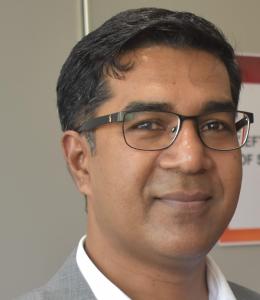
Alwaleed Visiting Research Fellow, December 2020 - March 2021
Citizenship, mass-denationalization, and statelessness in mighty States: The cases of the Rohingya and India’s NRC
Abstract
In the citizenship literature, mass-denationalization is understudied. Most studies tend to focus on such questions as whether a State can at all denationalize a citizen or what should be the principles guiding denationalization. What if a post-colonial mighty State denationalize a large group of people? Mass-denationalization takes place on grounds of extreme nationalism based on faiths or any particular ideology, and with the help of authoritarian laws although it indeed is an offence against international law. The proposed research seeks to investigate two cases of mass-denationalization, one in the making and the other completed, in two modern nation states—India and Myanmar.
India started classifying a huge number of its nationals as non-citizens since 2015, finalizing the National Register of Citizens (NRC) in 2019 acknowledging only those who have ‘documentary proof” of being Indians before midnight on 24 March 1971 (a day before Bangladesh’s independence). As a result, a total of 1.9 million people belonging mostly to the Muslim community have become stateless. On the other hand, by using a law, Myanmar has denationalized an ethnic Muslim minority group, the Rohingya, in the Rakhine state. Over a million of Rohingya have now taken refuge in neighbouring Bangladesh where they continue to live as unrecognized refugees. The proposed research will investigate how the two mighty States construct the institute of citizenship and their sovereign authority to exclude large groups from citizenry, and what are the international law implications of mass-denationalizations.
Short bio
Ridwanul Hoque is a Professor of Law at the University of Dhaka and a University Fellow at Northern Institute, Charles Darwin University, Australia. He earlier taught at the University of Chittagong in Bangladesh. He has studied law at the Universities of Chittagong, Cambridge, and London for, respectively, LLB, LLM, and PhD. Professor Hoque has held visiting research and teaching positions at Cornell Law School, Melbourne Law School, La Trobe University, and National Law University, Delhi. He specialises in Bangladeshi and South Asian constitutional laws and has a special interest in citizenship law. He has acted as an expert in several SIAC cases in the UK involving citizenship-deprivation orders by the SSHD. As a foreign law expert, he has also written expert reports for the US and Australian courts. He has an extensive experience of consultancy in the areas of children’s rights, labour migration, and human trafficking. He is the author of Judicial Activism in Bangladesh: A Golden Mean Approach (Cambridge Scholars Publishing, 2011). His latest publication is a co-edited volume — Constitutional Foundings in South Asia (Hart Publishing, 2021).
